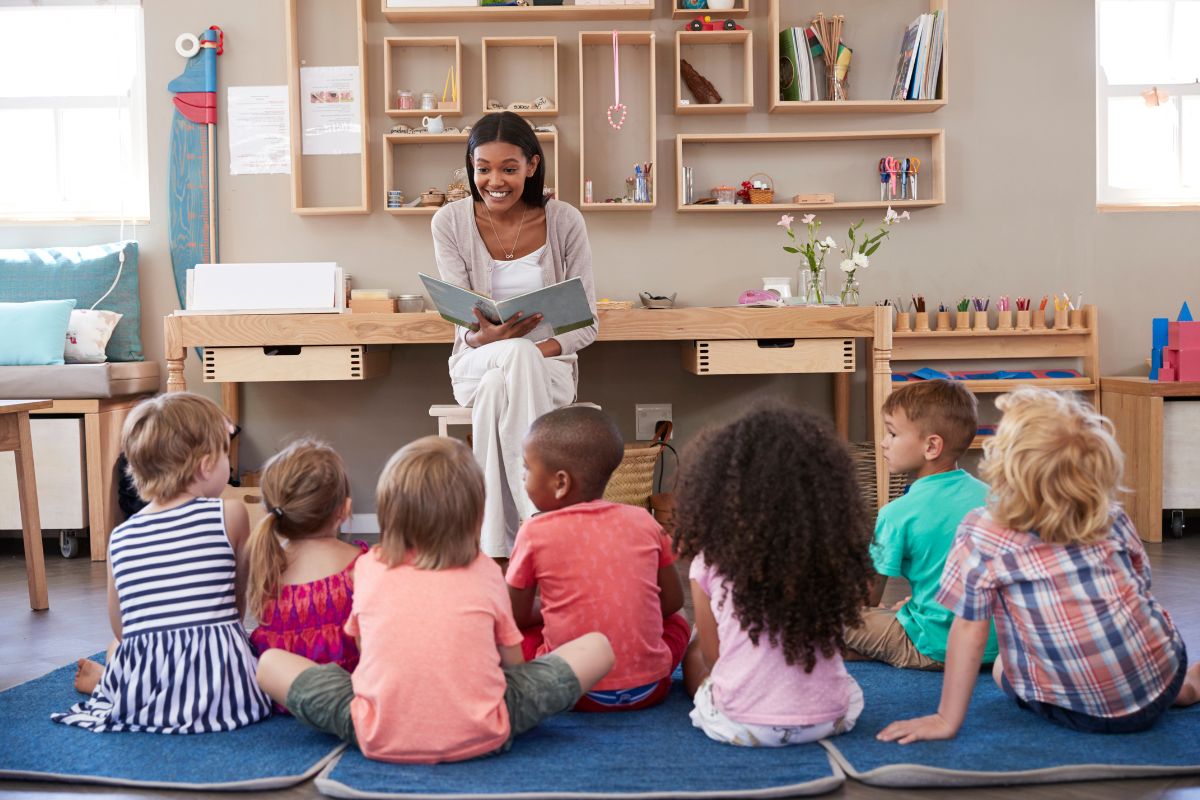Every child carries within them a natural desire to learn, explore, and grow. In Montessori education, the idea that each child deserves to be treated as a unique person is not just a philosophy, but the foundation of every classroom. Respecting individuality means seeing children as capable, valuing their choices, […]
Read MoreMontessori and Individual Learning Pace
Every child learns in their own way and on their own timeline. In Montessori classrooms, this idea is not just accepted—it’s celebrated. The approach is designed to support the natural rhythm of each child’s development. Instead of pushing everyone through the same material at the same speed, Montessori education offers […]
Read More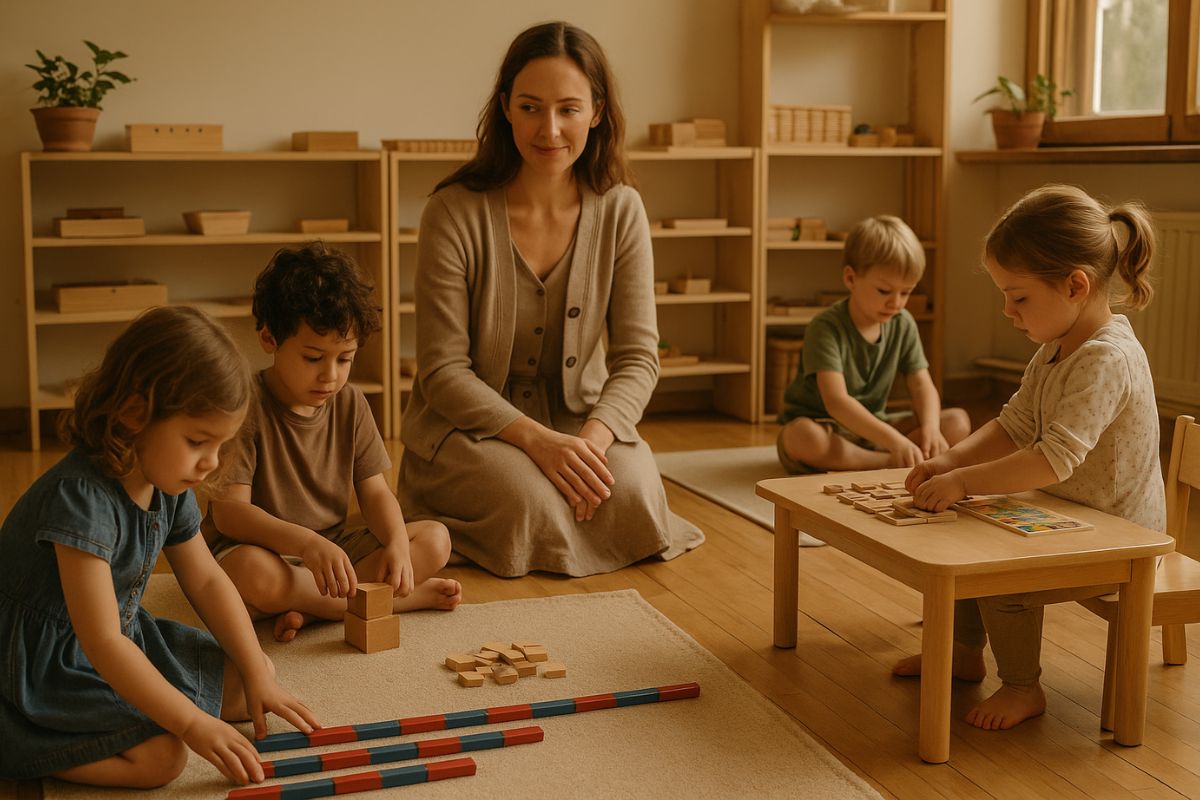
Encouraging Problem Solving in Montessori
Children are naturally curious, and Montessori education is built to nurture that curiosity. Instead of giving them answers, it gives them the space to think. In a Montessori classroom, problem solving is more than a skill—it’s part of daily life. And for many parents and educators, it’s one of the […]
Read More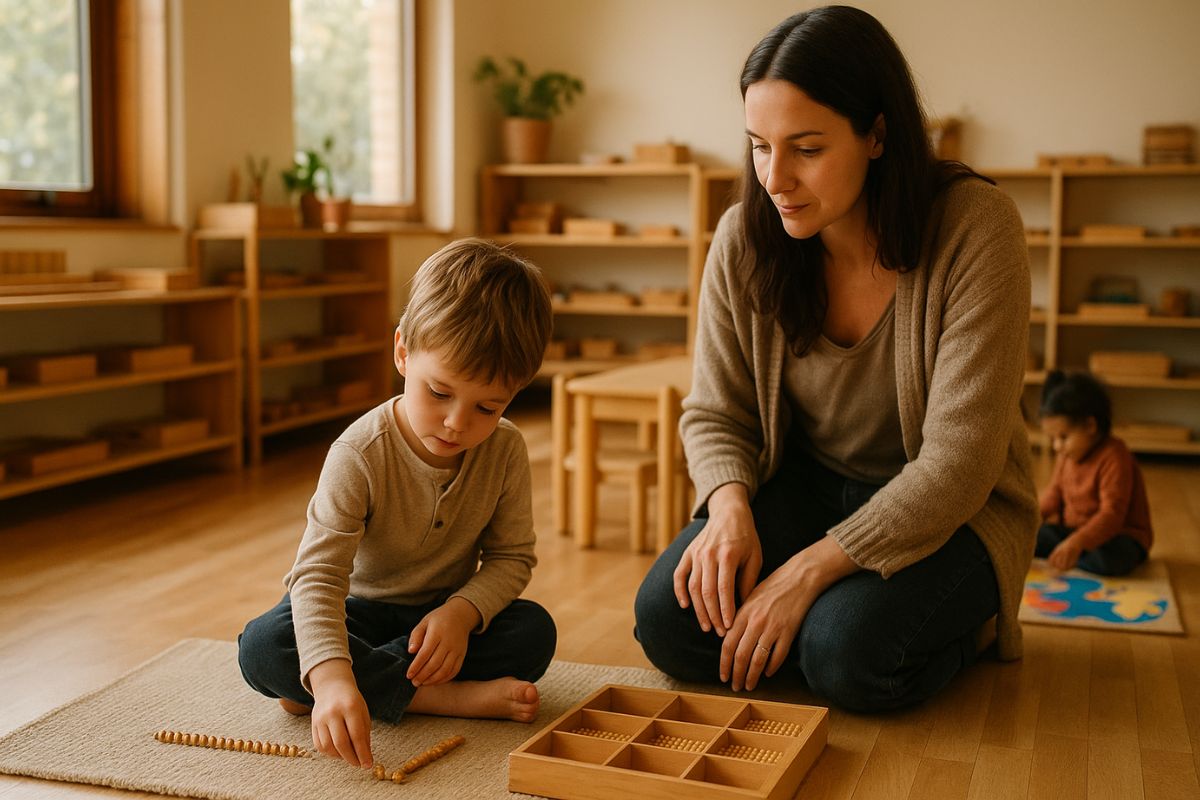
How Guides Facilitate Learning in Montessori
In every Montessori classroom, there’s someone who seems to be quietly watching, gently guiding, and offering just the right help at the right time. That person is the guide. Not a traditional teacher and not a passive observer, the Montessori guide plays a vital role in shaping a learning environment […]
Read More
Montessori Process Over Product
In many traditional classrooms, a child’s success is judged by the final result. A perfect craft. A correct worksheet. A clean, finished project. But in Montessori education, what matters most is how the child got there. It’s not about the outcome. It’s about the journey. Focusing on the process helps […]
Read More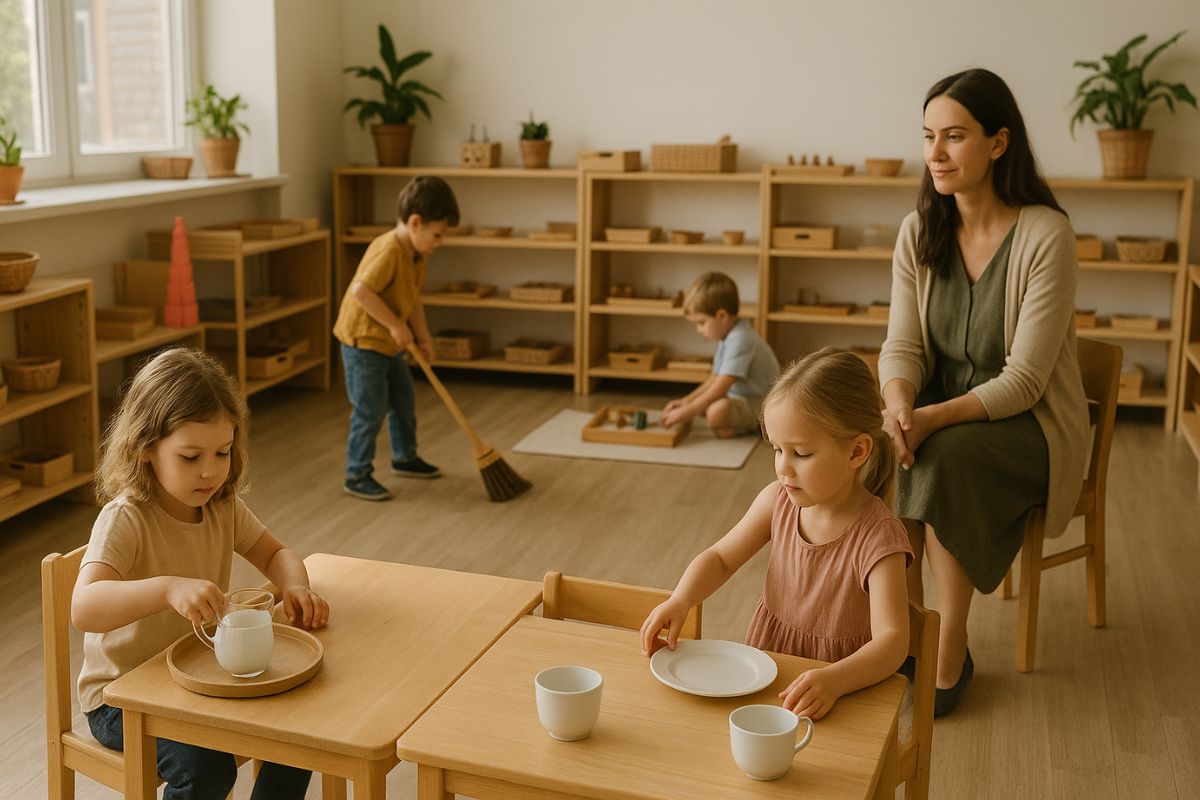
Montessori Approach to Discipline
Discipline is often misunderstood. Many think it means strict rules, punishments, or control. But in a Montessori setting, discipline looks very different. It’s not something imposed from the outside. It grows from within the child—developed through respect, choice, and self-awareness. The Montessori approach believes that children are capable of self-control […]
Read More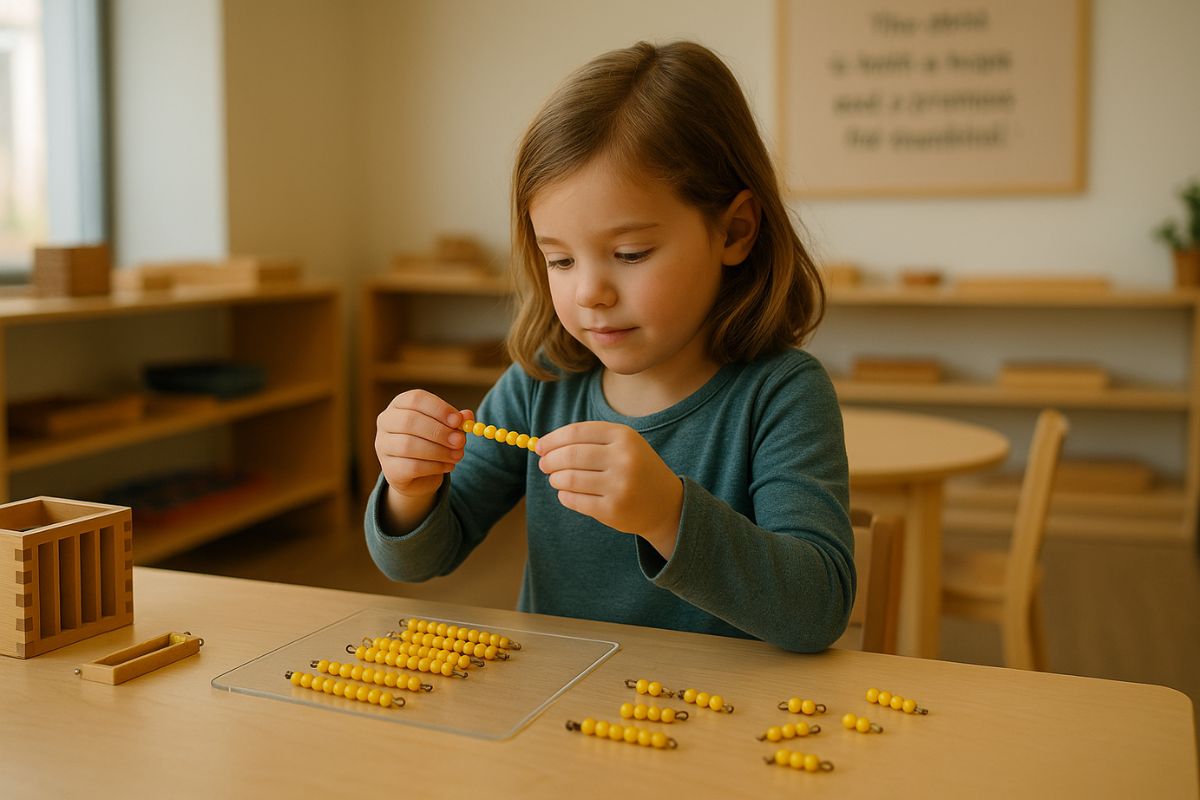
How Montessori Encourages a Growth Mindset
Children are natural learners. They explore, question, and try again when things don’t work the first time. This drive is not about competition. It’s about curiosity and effort. In a Montessori setting, this instinct is protected and supported—leading children to believe they can grow their abilities through experience, reflection, and […]
Read More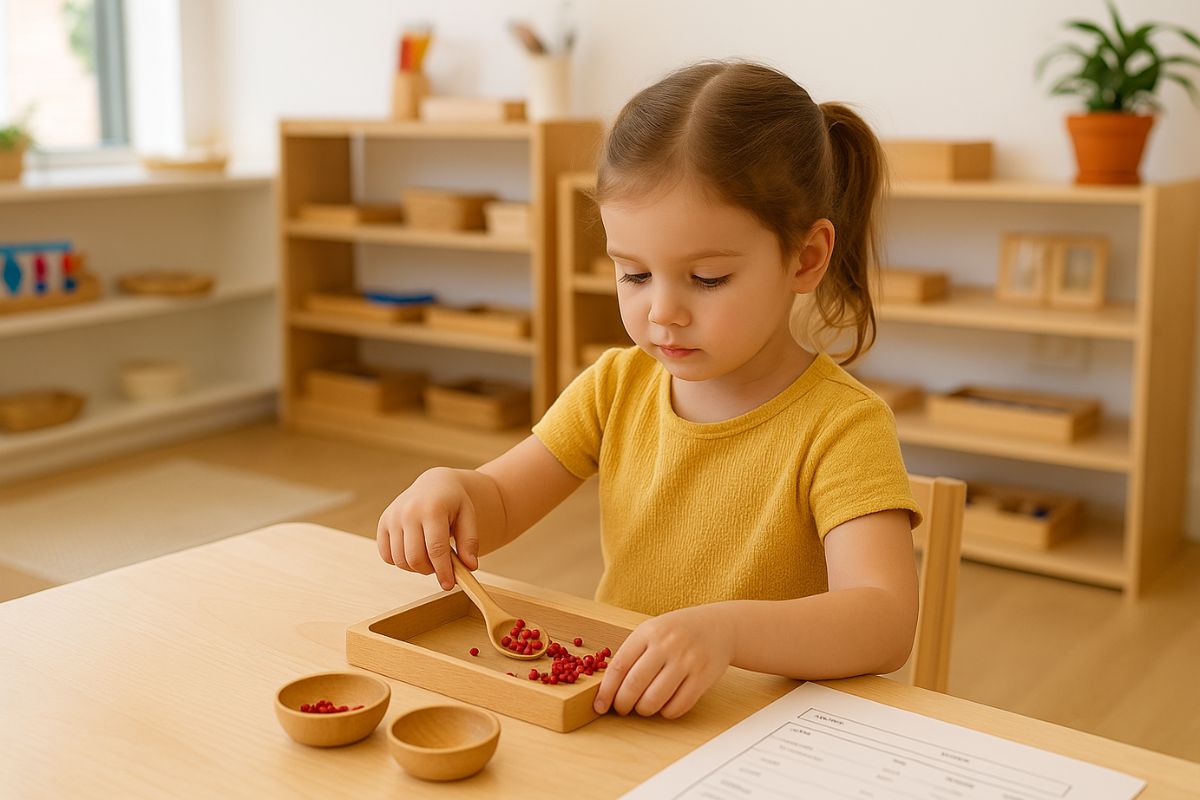
The Role of Independence in Montessori Education
Step into a Montessori classroom, and one of the first things you’ll notice is the quiet confidence of the children. They’re not waiting for instructions. They’re not lined up for the next activity. Instead, they’re choosing their own work, moving freely, and engaging deeply—all without needing constant adult direction. This […]
Read More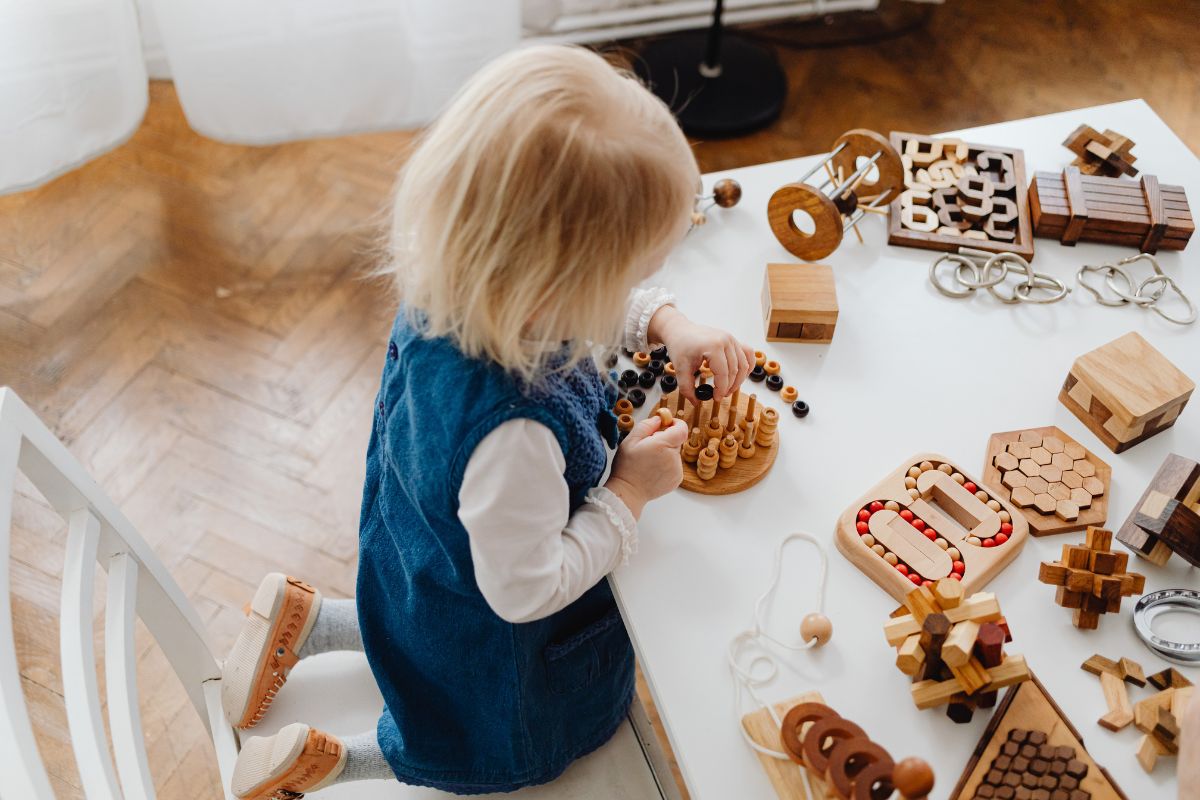
How Montessori Aligns with Child Development Theories
Children grow, learn, and understand the world in ways that are both beautiful and complex. Educators and parents have long searched for the best ways to support that growth. Among the many approaches, Montessori education continues to stand out—not just for its unique classroom setup or quiet hum of independent […]
Read More
How Montessori Has Shaped Modern Teaching Methods
Walk into a progressive classroom today, and you’ll likely see students moving freely, choosing tasks, and working independently or in small groups. These ideas may seem new, but they’re rooted in something that started more than a century ago. Maria Montessori’s approach has had a quiet but lasting influence on […]
Read More